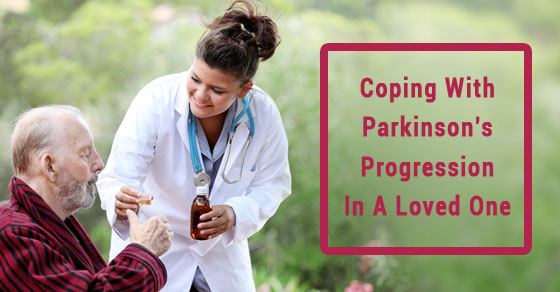Parkinson’s disease is a neurological disorder primarily affecting one’s motor skills. Parkinson’s causes one to become shaky, rigid, slow, and generally makes it difficult for the person to move. Because of these effects, routine tasks often become difficult. However, no two cases of Parkinson’s are the same, and cases evolve differently over time. People may have vastly different needs depending on how the disease affects them and the stage of Parkinson’s they’re experiencing.

When your loved one is first diagnosed with Parkinson’s, your focus should be on providing them with emotional support. You should make it clear that you are available to your loved one should he or she need someone to talk to. You should also make an effort to read-up on the disease in order to understand what your loved one is expected to go through, and understand in greater detail how you can help them cope.
With respect to the physical challenges associated with Parkinsons, you might offer to assist your loved one with household duties and routine tasks such as administering medication, preparing food, and cleaning.
You may also ask to attend doctor’s visits with your loved one so they feel supported in tackling the disease. Additionally, you should be prepared to report the emergence of new symptoms to the doctor that the patient doesn’t notice. It is important to be sensitive to change in your loved one’s demeanor and mood, as depression is a symptom of Parkinson’s, and any such changes should be reported to their doctor at the first sighting.
Caring for someone with a chronic illness like Parkinson’s can be emotionally draining, so it’s important that you continue to care for yourself. Otherwise, you could experience burnout or a drop in your quality of life.
Make sure that you continue to make time for yourself and to pursue things that interest you. Exercise, especially, is a great way to manage stress. You might look into programs that are available in your area to take care of your loved one while you are doing other things. You might also look into support groups for caregivers of people with Parkinson’s.
Caring for someone with Parkinson’s can be difficult but also very rewarding, knowing that you are playing such an important part in your loved one’s life. Make sure you continue to take care of yourself so you can perform at your best.

